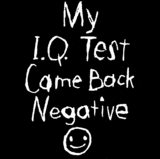The Criminalization of Learning in a Knowledge Based Economy.
"The right to learn is now aggressively opposed by intellectual property advocates, who want ideas elevated to the status of land, cars, and other physical assets so that unauthorized acquisition can be prosecuted as theft." - Robert Laughlin, Nobel Prize winning physicistSequestering knowledge under the cloak of a freely available information-rich world is alive and well, as the barriers that scientists, engineers, etc, encounter get larger and larger. Since the 1970s, intellectual property law (knowledge restriction law) has expanded exponentially, and as I have posted several times before, is about ready to expand once more, as many powerful forces conspire to make acquiring information dangerous, or even a crime. Now, an innocent flash of insight could potentially lead to to infringing on a patent or, even threaten national security! Nevertheless, as paradoxical as it sounds, in a knowledge based economy, real knowledge will become increasingly less available. Why? Because, when you commodotize something, it must become less available in order to retain its value.
Sure there is a ton of disposable knowledge, on the Internet, but how useful is it? Nobel prize winning physicist, Robert Laughlin, author of The Close of Reason and the Closing of the Scientific Mind claims that increasingly, the really useful stuff is classified or privatized. The knowledge connected to how you make your living is and will become more scarce. At the same time, the information connected to advertising has and will become more plentiful. In other words, through the dumbing down of our current public education system, absurd patent laws, and excessive disposable knowledge, the knowledge based economy will continue to increase our ignorance. Can you say scary??
Take word processing software, for example. It has made the technology of communication proprietary. It's a computer program that you must buy. In addition to the monetary cost, the price you pay is that it becomes illegal for you to know how it works. If you figure out the communications protocol and write it down on a piece of paper, and then show someone that piece of paper, you're in violation of the Digital Millenium Copyright Act.
And in Oregon, someone wrote a computer program to control his electric trains and promptly got sued. Why? Because the concept of controlling your train with a computer had been patented!
As more and more technical knowledge is outlawed, there is a very real danger that our most brilliant and creative minds, when trying to learn how the world works through the discoveries of others will be rendered impotent by a legal framework that prohibits them from attempting learn about the world around us .
Within the past ten years it has become illegal to to understand encrypted communication and distribute code-cracking devices. Moreover, it is now legal for corporations to monopolize certain forms of communication; and it is possible to patent sales techniques, hiring strategies, and gene sequences. There are now attempts to patent the entire idea of Internet learning. So, if you want to teach someone over the Internet for profit, you will have to pay a liscencing fee to the people who invented Internet learning. Broad areas of science, in particular, physics and biology, are now off limits to public discourse because they are national security risks and there are notorious examples in the literature of medical research at universities that are blocked because of a patent position that a company has taken. You can't do research on it without paying them a liscence fee. These ever increasing restrictions on fertile scientific and technological fields are creating a new Dark Age
In effect, the decision to deindustrialize is making us an even more ignorant society. The more knowledge based our economy becomes the less knowledge there is going to be for free. The continuation of this trend will end up in a situation where there is nothing left but knowledge and none of it is free. Read more...





